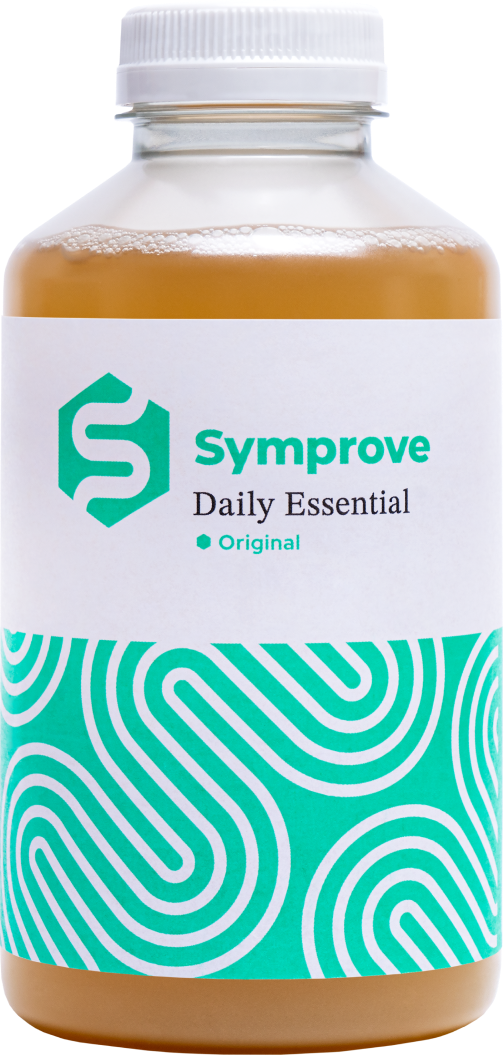Did you know that approximately 70% of your immune system resides within the gut? This includes immune cells, tissues and organs, all located along the digestive tract. This means that the gut and immune system are intricately connected, forming a dynamic partnership that plays a pivotal role in overall health. The gut-associated lymphoid tissue, often abbreviated to GALT, is the home to your gut immune system. These microbes, collectively known as the gut microbiota, exert a profound influence on your immune system both locally in the gut and beyond.
Early life and the gut-immune connection
The gut-immune crosstalk starts in utero but it’s birth and the first few years of early life that make the most significant impact on this relationship and set the trajectory of future health outcomes. At birth, our immune system is relatively underdeveloped and inexperienced. It needs to learn how to discern between harmful and harmless microorganisms. This means that our immune system undergoes a significant part of its development through exposure to microbes, both good and bad, during the first few years of life. This is where the gut microbiota is key. Exposure to these harmless microbes plays a critical role in training and educating the immune system to differentiate between the harmful and the harmless. This education process starts in childhood and continues throughout our lives. Early life imbalances in the gut microbiota are now understood to drive both short and much longer-term poor health outcomes including infectious diseases, allergies, autoimmune diseases, irritable bowel syndrome, obesity, diabetes, cardiovascular diseases and even a range of neurological and mental health conditions.
Mechanisms of gut-immune crosstalk
A critical component of the gut-immune axis starts with what we eat. Fibre is the collective term for the complex carbohydrates found in fruits, vegetables, herbs and spices, nuts and seeds, whole grains and legumes. Our gut bacteria possess enzymes capable of breaking down these complex carbs, allowing us to reap their health benefits. In turn, fermentation of fibre by gut microbes promotes the growth of beneficial bacteria in the gut, which helps maintain a balanced and healthy gut microbiome.
When your gut microbiota breaks down fibre they produce metabolites. These might be their metabolic waste products, but this enormous number of metabolic products not only nourishes our health but mediates the cross-talk between the gut and the immune system. They include crucial nutrients like essential amino acids, certain vitamins and special immune-nourishing compounds called short-chain fatty acids (SCFAs). We can find SCFAs in small amounts in our diet but the primary source is their direct manufacture by our own gut bacteria. Collectively, SCFAs are considered the most abundant and important microbiota-derived metabolites in the gut. Studies show they have the capacity to reduce intestinal inflammation, protect the gut against invasion with infectious germs, and maintain barrier integrity. A healthy gut barrier is essential for preventing harmful microorganisms from entering the bloodstream. The gut microbiota helps sustain the gut barrier’s integrity through their production of protective SCFAs and by promoting the production of mucus. Interestingly SCFAs can act at an epigenetic level suppressing histone deacetylases (HDACs). This makes it easier to express certain genes associated with reduced inflammation and better immune function. SCFAs are one of the key mechanisms by which a healthy gut microbiome can impact an individual's risk of infection also inflammatory diseases like allergies and autoimmune diseases.
Gut bacteria help regulate the immune system's responses. They can either activate or suppress immune reactions as needed. This balance is critical for responding effectively to infections while preventing chronic inflammation or autoimmune reactions, where the immune system mistakenly attacks the body's own tissues. For example, the gut microbiota plays a pivotal role in promoting immune tolerance - the ability of the immune system to be balanced. It does this by promoting the production of regulatory T cells (Tregs), a type of immune cell central to immune tolerance. Tregs help suppress excessive immune responses, keeping the immune system in check. Some gut bacteria contribute to the production of antibodies and other immune factors crucial for combatting infections. For example, certain species of bacteria in the gut support the production of immunoglobulin A (IgA), an antibody that helps protect the mucosal surfaces of the gut. The gut is a diverse ecosystem where various microorganisms coexist, including bacteria, viruses, fungi, and archaea. Microbes in the gut compete with harmful bacteria for essential nutrients and resources. Beneficial bacteria are adept at efficiently utilizing these resources, leaving fewer nutrients available for pathogenic microbes. This competition can limit infections caused by harmful species.
The gut-immune axis and disease
Based on the diverse mechanisms I’ve just discussed, you start to see how disturbances in the gut microbiota are linked to so many different symptoms and conditions of poor health. Dysbiotic microbiota can themselves trigger an inflammatory gut environment as well as altered production of key metabolites like SCFAs, negative epigenetic changes and altered immune cell function and antibody production. Disruptions to the gut barrier allow bacteria and other components of the gut lumen to cross into the bloodstream, further inducing systemic inflammation. While acute inflammation is a natural and necessary response to injury or infection, chronic inflammation can drive tissue damage and immune system dysfunction and has been linked to several chronic health conditions, metabolic diseases and even certain cancers. Understanding and recognizing these mechanisms is crucial for healthcare practitioners to develop targeted interventions and restore gut microbiota balance in disease prevention and management.
Supporting people on their individual gut-health journey
It’s likely that your patients and clients will have heard the phrase ‘gut health’ as it’s entered the mainstream over the last few years. It’s less likely that they are aware that what happens in the gut, doesn’t stay in the gut, but this relationship extends far beyond the confines of the digestive system, influencing the immune system throughout the entire body. And this wide-reaching influence significantly affects how the immune system responds and has profound implications for various aspects of our health.
As healthcare practitioners (HCP), we can orientate them against the complex backdrop of emerging science as well as understand experiences that may have compromised their microbiome. For example, it is crucial to be aware of the crucial importance of early life events on the overall balance and function of the immune system. By examining the key chronological events and experiences across a person's life can reveal some of the events that may have influenced their gut health. This includes things like mode of birth, breastfeeding, early life exposure to antibiotics, habitual diet and things like medication. This can go some way to explain current symptoms and immune-related issues, helping to provide more personalised and effective care.
As the autumn leaves fall and winter's chill approaches, the prevalence of viruses causing seasonal coughs, colds, and flu increases. You might receive an increased number of questions about how to give extra support to immune health. While many people associate this with things like vitamins and supplements, they often overlook the fact that the gut also plays a crucial role in the immune health equation. Here HCP can assess their own unique starting point and then guide them through the small sustainable improvements to diet and lifestyle that will support the community of beneficial gut bacteria and a robust immune system.
Practical tips for your patients
- Probiotics: Encourage individuals to incorporate fermented foods that contain live microbes like yoghurt, kefir, sauerkraut, and kimchi into their diet. Trying a probiotic supplement is also an option to bolster gut microbiota and many strains have been found to exert general immune-modulating effects as they make their journey through the gut. However, in clinical practice, it is important to note that efficacy is dependent on the specific strain of bacteria and the particular disease or condition being addressed. Make sure to be mindful of these factors and research supporting data on specific strains when recommending probiotics for specific clinical issues. Given the complexity of the human gut microbiome, I suggest to advise taking probiotics for at least up to 12 weeks while monitoring symptoms.
- Prebiotic Fibre: Consume plenty of fibre from fruits, vegetables, nuts and seeds, beans and pulses and whole grains. Don’t forget the herbs and species count too, even the dried ones. More is better and opt for plant diversity when you can. This fibre serves as nourishment for beneficial gut bacteria, promoting their growth and diversity and enabling them to exert all their immune-nourishing benefits.
- Vitamin D: Optimise vitamin D levels as this hormone plays a crucial role in immune function and your ability to keep winter colds at bay. We can get it from sunlight exposure, fortified foods, or supplements as recommended in the UK between October and April. Bacteria in the gut microbiota and their fermentation products regulate the expression of vitamin D receptors allowing us to get the most out of vitamin D.
- Stay Hydrated: Proper hydration supports mucosal barriers in the gut, helping them act as a barrier to prevent pathogens from entering our bodies.
- Avoid excessive use of antibiotics and some other medications including proton pump inhibitors and metformin, as they can disrupt the gut microbiota. Always research any medications a person is taking for possible interactions with the gut microbiota and work to find alternative treatments when appropriate.
- And finally, just remember to share the message that our gut health isn't solely determined by our dietary choices; it's also influenced by other lifestyle factors like physical activity, the quality of our sleep, time in natural environments and stress - a known disruptor of gut health and immune function.
Summary
As an HCP, sharing the key role of the gut-immune connection to our health is critical. We can empower people to improve their immune health by way of their gut and share the many simple (and delicious) ways we can do this by nurturing the gut microbiota with a balanced diet enriched with probiotics and a diversity of prebiotic fibre and prioritising gut health through lifestyle changes and stress management to stay resilient and healthy all year and every year.



